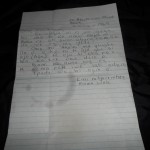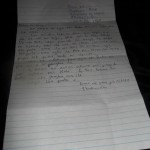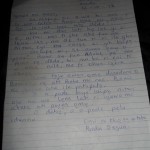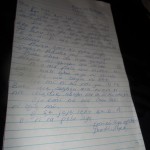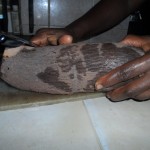Ni àtijọ́, àwọn ọmọ ilé-iwé ló ńran àgbàlagbà ti kò lọ ilé-iwé lọ́wọ́ lati kọ iwé, pataki ni èdè abínibí. Ẹ ṣe àyẹ̀wò àwọn iwé-àkọ-ránṣẹ́ wọnyi ni ojú iwé yi:
Ìwé ti Ìyá kọ sí ọmọ
Èsì iwé ti ọmọ kọ si iyá
Iwé ti ọkọ kọ si iyàwó
Èsi iwé ti aya kọ si ọkọ
- Ìwé ti Ìyá kọ sí ọmọ – Yoruba mother to child letter. Courtesy: @theyorubablog
- Èsì iwé ti ọmọ kọ si iyá – Response from child to mother. Courtesy: @theyorubablog
- Iwé ti ọkọ kọ si iyàwó – Husband’s Yoruba letter to wife. Courtesy: @theyorubablog
- Èsi iwé ti aya kọ si ọkọ Wife’s response to husband ‘s letter in Yoruba. Courtesy: @theyorubablog
ENGLISH TRANSLATION Continue reading
Originally posted 2014-03-11 01:14:25. Republished by Blog Post Promoter


